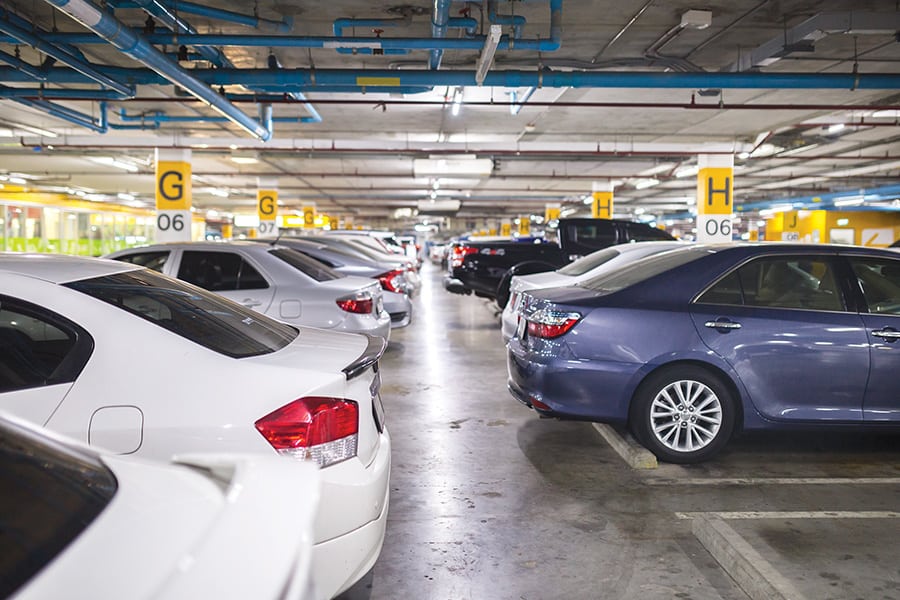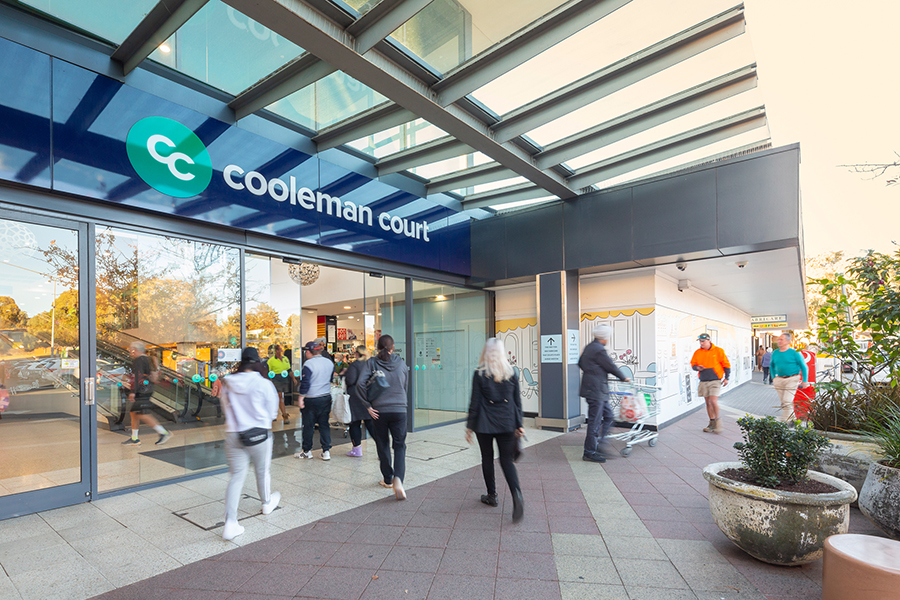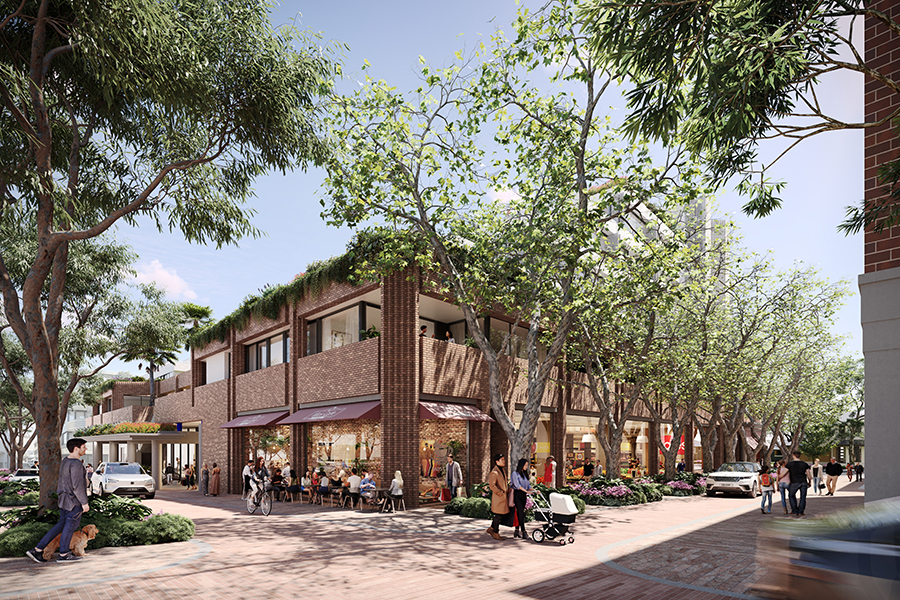You might find this difficult to believe, but there is a move afoot to legislate for free parking in shopping centres for retail workers. The issue has incredibly wide implications. At one extreme, car parks are keenly sought after by shoppers and reducing their numbers will undoubtedly affect trade; at another, the very rights of individuals and corporations to use their assets as they choose (within the law of course) is being challenged. Angus Nardi explores the issue.
Shopping centre car parks have become a hot issue, again, with expectations running high (again). The Shop, Distributive and Allied Employees’ Association (SDA) has made it clear that it wants “free and safe parking for retail and fast food workers”.
With this expectation in mind, the SDA has been hard at it, pouring scorn on the introduction of parking schemes that include an express or implicit requirement for retail workers (ie. the employees of retailers) to pay for parking.
The union’s messaging can be provocative, suggesting that paid parking is a ‘kick in the guts’ for retail workers, and that shopping centres have a ‘social contract with the community’ (and should therefore provide free parking).
The SDA has also framed paid parking as being a ‘double-barrelled blow’ for workers, given the Fair Work Commission’s 2017 decision to reduce Sunday and public holiday penalty rates for retail workers covered by the Modern Award. (It’s worth noting, that many workers at retailers within shopping centres are covered by relevant Enterprise Agreements (eg. Coles, Woolworths and not the Modern Award).
To make its point, the SDA has organised protests, and enjoyed related media coverage. In some cases, members of parliament have expressed support for the union’s position, and a ‘carve-out’ for retail workers from paying for parking, when compared with customers.
Of course, such a position from any member of parliament is pretty hard to take, whereby they would seek to advocate for free parking and single out shopping centres.
Governments at all levels charge for car parking (eg. kerbside meters, hospitals), along with charging for other transport services such as buses and trains. They may even collect a road toll (or two) from retail workers on their way to a shopping centre. This is on top of car park restrictions and regulations imposed on shopping centres.
Governments have, of course, introduced such charges and measures on the basis of policy and taxation principles such as user-pays, cost-recovery, tax-payer benefits or related objectives such as promoting public transport.
While it’s easy to expect something for free from someone else, and throw slogans at something you don’t like, we fail to see how the SDA’s expectation of free parking is fair and reasonable. To our knowledge, no enshrined ‘right’ for free parking exists systematically across industrial relations mechanisms or enterprise agreements. Indeed, governments don’t provide public servants with widespread free parking.
This raises a key issue on rights: how can the expectation for free parking override a shopping centre’s right to manage its car park, principally to ensure convenient spaces for customers, and which can include charging a modest fee (akin to a public transport fare)?
Further, it raises an issue as to whetherthe union’s expectation is fair, given that retail workers aren’t employees of shopping centre owners or managers, but are, rather, employees of retailers.
Retailers, as the employers of retail workers, could seek to ensure the direct provision of parking spaces for their staff, or provide compensation or reimbursement for paid parking. To this extent, why isn’t the SDA targeting retailers?
The SDA’s expectation of free parking has emerged in recent years following the introduction of paid parking at some suburban shopping centres in Brisbane in 2011. At the time, this move received a lot of media attention.
This also prompted two attempted interventions, which were ultimately unsuccessful.
First, there were calls for the government, and Brisbane City Council, to intervene to regulate and prohibit paid parking.
Second, the SDA made an application to the Fair Work Commission to amend the Modern Award to provide that, if a retail worker chooses to park at a car park that requires payment, they should be compensated. This application was opposed by the NRA, and supported by ourselves.
Beyond this, according to our assessment, there is no current Enterprise Agreement between the SDA and major retailers within shopping centres (eg. Coles, Woolworths, Big W, Kmart, Myer) which provides retail workers with free parking – either directly or by way of compensation or reimbursement.
The only reference in Agreements to staff vehicles is in relation to staff being able to ‘move’ vehicles after dark, closer to their store, if a centre’s by-laws permits – along with ‘safe escort’ to a worker’s vehicle after hours.
Some Agreements have terms and conditions relating to transport to home in relation to after-hours work. This includes, for example, the cost of a taxi-fare, where there is no ‘regular means of transport available’, where a worker works additional hours at short-notice, or their shift finishes after-hours (ie. between 10pm and 7am).

At the time of writing, it was announced that the SDA and Woolworths (supermarkets) had reached an in-principle agreement in the development of a new Agreement. Of the outcomes the SDA claimed it has negotiated for its members including wage and leave related issues – free parking (or compensation for paid parking) wasn’t noted as an outcome.
It’s perhaps then no surprise that the SDA has focused its expectations on shopping centres. In doing so, however, the SDA’s expectation seems incredibly blinkered, and isolated from various challenges and issues.
The SDA doesn’t demonstrate an understanding that shopping centre car parks can have substantial demands placed on them, much of them directly from governments, along with other external factors.
In balancing such demands, shopping centres are ultimately accountable to their rent-paying tenants and retailers (ie. the employers of retail workers), which includes an obvious and strong need to focus on providing convenient car parks for customers.
As it stands, the number of car spaces available for customers is required to be disclosed to prospective retail tenants under lease legislation. In other words, car parking for customers remains a critical ingredient in a retail tenant deciding whether or not to enter a shopping centre.
Government requirements can be a minefield, including restrictions on the number of spaces that can be supplied, along with costly contributions towards road and public transport infrastructure. These requirements are in addition to baseline issues such as access from adjacent roads (eg. to avoid queuing and congestion), and critical vehicular circulation and pedestrian safety issues.
It’s worth noting that some government agencies, such as in Western Australia, have expressly encouraged paid parking in shopping centres, including for retail workers. A few years ago, a WA issues paper even suggested that paid parking be mandated, as a means to encourage public transport use.
Pressure can also come where a shopping centre has a public transport hub on site (eg. a bus interchange), adjacent to its site (eg. a train station) or a nearby employment precinct, which places substantial pressure and expectations for commuter and other worker parking.
In most cases, these external factors are beyond the control of a shopping centre owner.
At a time when retail is evolving and consumers have multiple choices as to where to purchase retail goods and services, it’s critical to ensure a customer’s journey into a shopping centre is convenient and seamless. Convenient parking remains critical to this journey. Increasingly, this is also why centres are introducing technology such as licence plate recognition, parking guidance systems and valet parking services.
The effect of the SDA’s expectation is that centres have to maintain relevance and compete in a fluid retail market with one hand tied behind their backs. With respect to the SDA, a car park full of retail workers isn’t a positive outcome for customers, retailers or the centre.
But just when our rights should be respected, protected and considered in a measured way, we’ve been swiped from the side.
The Victorian ALP’s recently released 2018 policy platform, ahead of the November 2018 state election, makes the following commitment in addressing ‘emerging issues for workers’: “Legislate under planning or other laws for free parking for employees during their shifts in shopping centres with car parking and request WorkSafe Victoria to develop standards for safety in shopping centre car parks for employees who work at shopping centres.”
Yes, you read that correctly. ‘Legislate for free parking’ in shopping centres. Yes, shopping centres (all of them, it seems) are being singled out.
To provide context, this commitment sits under the ‘Jobs’ section (the leading section) of the ALP’s policy platform, and specifically section 1.1 entitled ‘Your Rights at Work’, and sub-section 1.1.1 entitled ‘Tackling Inequality and Exploitation’.
The Victorian ALP has made a judgment that the rights of retail workers – who aren’t the employees of a shopping centre – outstrip a shopping centre’s rights to manage its car park. Interestingly, this commitment looks very similar to an SDA media release issued in November 2017. This, of course, gives little assurance as to the depth of policy consideration and industry engagement in this part of the ALP’s platform!
As for the second limb of the commitment, for WorkSafe Victoria to develop safety standards, this is bizarre, and no doubt an attempted policy wedge.
Not one person in the ALP or the government has approached us on this issue. There is no evidence in recent WorkSafe annual reports that there is a structural issue with shopping centre car park safety. A Parliamentary Committee on Road Safety a few years ago made no adverse or structural findings. Our members can’t recall any major issues.
What’s most disappointing is the flimsy policy process of this commitment. It seems to be more of a policy slogan that is devoid of considered policy logic. This proposal breaches the government’s own ‘Guide to Regulation’ which provides that regulation should address underlying causes of harm, be cost-effective and flexible. None of this, of course, has been addressed.
Under the Guide to Regulation, policy advice to the government needs to outline the nature of the problem, options and the views of stakeholders. None of this, of course, has been addressed. Our view certainly hasn’t been sought.
It’s clear that as our industry seeks to better manage its car parks, expectations for free parking will continue to run high.
In our view, any expectation of free parking is unfair and unreasonable.
What’s also clear is that the risk of policy intervention is high, and that this has the potential to be bereft of any policy logic, and could be isolated, disconnected and potentially raise unintended consequences. A blunt, and blinkered, solution to require shopping centres to provide free parking won’t be a positive outcome for shopping centres, their retailers, or their customers – not in today’s retail market, or the future.




















